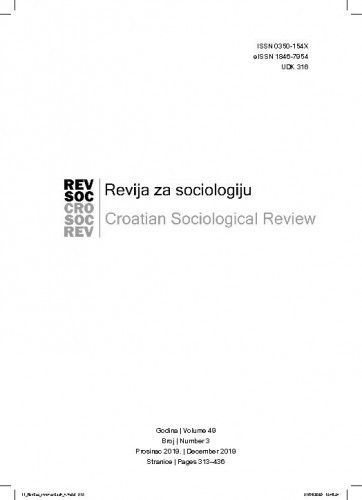The subject of this paper is the symmetry and asymmetry of nationalism and globalism as a qualitative social relation determined by the logos valences (significance, meaning, and sense) of their structural segments. The aim is to establish symmetrical and asymmetric networks of nationalism and globalism that follow their positive and negative dimensions. Nationalism is, basically, a reflection of the nation that contains all the essential contradictions of the emergence and development of a nation, as well as its historical and metaphysical categorisation. Nationalism as a comprehensive, genetically structured social phenomenon can be socially identified and explained only as a symmetry of its positive and negative components. There is no ‘pure’ nation in an ideal-type form, which reflects only positive nationalism, and neither is there a nation that reflects only negative nationalism. Reducing nationalism only to its negative side prevents the discovery of its positive side. The reflection of nationalism necessarily takes place in a state where the right of citizenship means acquiring a new, higher level of freedom, constituting the only logic of the nation. Thus, the nation, state, and citizen are inseparable subjects of a certain democratic community. Globalism is not a self-reflection of the global but rather a reflection of identity symmetries of individual societies-states, which encompasses a comprehensive exchange of their fundamental human values and interests. The central question is what qualitative contents maintain the dominant symmetry of globalism and its relation to the (in)variability of the essence of social life generation. The answer to this question is not possible without the identification of symmetric networks of nationalism and globalism and their qualitative mediation, in which the state plays a particularly important role.
Sažetak

 Revija za sociologiju : 49,3(2019) / glavna urednica, editor in chief Tanja Vučković Juroš.
Revija za sociologiju : 49,3(2019) / glavna urednica, editor in chief Tanja Vučković Juroš.